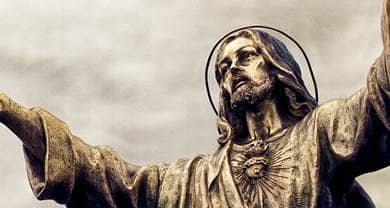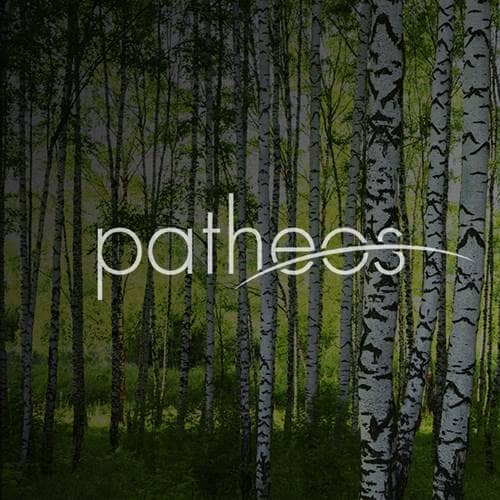- Trending:
- Pope Leo Xiv
- |
- Israel
- |
- Trump
- |
- Social Justice
- |
- Peace
- |
- Love

RELIGION LIBRARY
Lutheran
Sacred Texts
The most important text for Lutherans is the Bible. While this is true for most kinds of Christianity, several factors make it particularly crucial for Lutherans. First, Luther was influenced by the medieval nominalists and their belief that you could not draw analogies from the world to God. (So, for example, God's goodness is not like human goodness only much, much better-rather, humans cannot conceive of divine goodness.) God was completely unknowable, except insofar as God chose to reveal certain things to humans. The revealed Word of God is contained in scripture.
Second, no human works could save people, or move God to save them. A person's only hope for salvation was the free gift of God's grace. The promise of this grace is given in scripture. This is the kernel of Luther's realization about Romans 1:17 in his "Tower Experience".
Third, Luther's conviction that the Church did not have authority over scripture but that scripture had authority over the Church led to his excommunication. Luther was willing to challenge papal authority (in, for example, the Indulgence Controversy if his own reading of the Bible did not agree with official Church interpretation. One of Luther's mottos, so important for Protestantism, is "scripture alone!"
For all of these reasons, Luther spent a fair amount of time translating the Bible into German. This in itself was considered by the Roman Catholic Church an insubordinate act. As long as the Bible was only available in Latin, people had to rely on their priests and bishops to read and interpret it for them. Luther's German Bible made it possible for a large range of the population to read the Bible for themselves, and soon many homes owned a "Luther Bible." (Luther lived at a time when literacy began to increase among the general population.) Many historians of language consider Luther's translation of the Bible to play a similar role in German that Shakespeare's plays played in English: out of a huge range of dialects Luther's Bible served to standardize and grant status to a standard, widely accessible form of German.
Luther's Bible is not quite the same as the Roman Catholic Bible. There were several books he felt did not have canonical authority but had been added in error by the Catholic Church. These are mostly late texts (considered by Protestants to be "inter-testamental"). He used instead a list of Hebrew texts that ancient rabbis considered canonical. Books considered canonical by Catholic but not Lutherans and other Protestants are gathered in the Apocrypha.
Texts that are authoritative for Lutherans in particular, as opposed to all Christians, are collected and published in the Book of Concord (1580). In addition to three ancient creeds (the Nicene, Apostles', and Athanasian Creeds) that link Lutheranism to the Trinitarian tradition of the main strands of Christianity, the Book of Concord includes Luther's Large and Small Catechisms (1529), Luther's Smalcald Articles (1537), Philipp Melanchthon's Augsburg Confession (1530) and its Apology (1531), Melanchthon's Treatise on the Power and Primacy of the Pope, and the Formula of Concord (1577).
Luther wrote his two catechisms in response to a visit he made to churches and schools in Saxony in 1528 to see for himself what the level of belief and practice was in towns and villages. He was horrified by what he saw, writing "Mercy! Good God! what manifold misery I beheld. The common people, especially in the villages, have no knowledge whatever of Christian doctrine, and, alas! many pastors are altogether incapable and incompetent to teach." A catechism is an ancient form of instruction written for catechumens, or those learning the Christina faith. It is typically written in the form of questions and answers that can be memorized. Luther's shorter catechism, which he considered to be one of his most important works, is intended for lay people, the longer for their pastors.
The Smalcald League was a political band of Lutheran territories that formed to fight against Catholic territories. Luther's Prince, Frederick of Saxony, asked Luther to prepare a summary of Lutheran beliefs for a meeting of the Smalcald League in 1537. Philipp Melanchthon, who was of a more mild and irenic spirit than Luther, actually persuaded the League not to adopt these articles, because he saw them as too divisive. Instead the League adopted a treatise penned by Melanchthon himself, Treatise on the Power and Primacy of the Pope.
In 1530 Charles V, the Holy Roman Emperor, attempted to unite the various factions within his empire in order to better fight the Ottoman Turks. His hoped to resolve religious differences, among other things. Luther was unable to attend the meeting because he was a convicted criminal. Philipp Melanchthon as well as some other colleagues attended in his place. Melanchthon drafted the Augsburg Confession as a summary of the Lutheran faith for this meeting. The Roman Catholic Church responded to this confession in the "Confutation of the Augsburg Confession." Melanchthon's Apology (which means "defense") of the Augsburg Confession is his reply. This detailed response to the Roman Catholic Church, including an explanation of the Lutheran doctrine of justification, is the longest document in the Book of Concord.
After the deaths of the first generation of Reformers, when disputes could no longer be referred to Luther for resolution, a group of theologians met to resolve certain doctrinal debates. This resulted in 1577 in the Formula of Concord.










